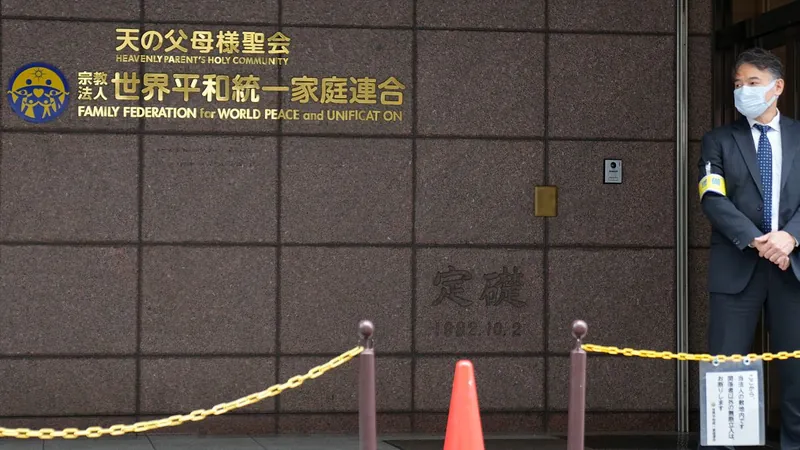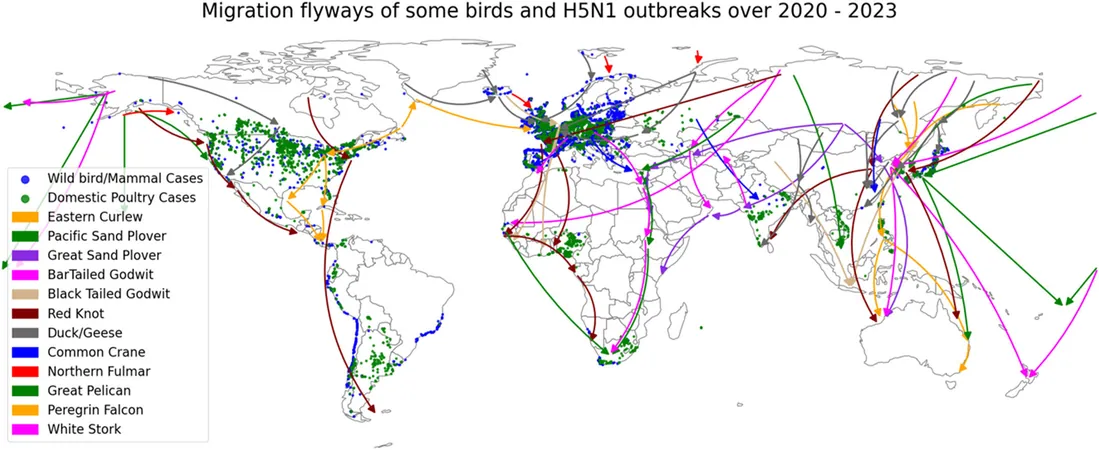
Shocking Verdict: Japan's Court Orders Controversial 'Moonies' Church to Disband!
2025-03-25
Author: Noah
Landmark Court Decision
In a landmark decision, a court in Tokyo has ordered the dissolution of the Unification Church, commonly known as the 'Moonies', following a request from the Japanese government. This ruling represents a significant move against the South Korean-based religious sect, officially named the Family Federation for World Peace and Unification, which has faced intense scrutiny over the past year.
Background and Context
The church's troubles began to escalate after the tragic assassination of former Prime Minister Shinzo Abe in July 2022. The alleged assassin claimed that the church's activities had bankrupted his mother, sparking widespread public outrage and concern about the church's influence on prominent political figures. Notably, Abe's party has been criticized for its ties to the sect, prompting action from the Japanese authorities.
Government Actions
In early 2023, Japan’s education ministry took a bold step to dismantle the church, asserting that its manipulative fundraising and recruitment methods have caused significant harm to its followers and their families. To support its case, the government submitted a staggering 5,000 documents and testimonies from over 170 individuals that detailed the church’s controversial practices.
Court’s Ruling
On Tuesday, the Tokyo District Court announced its ruling, officially revoking the legal status of the church. This unprecedented action marks the first time a religious group in Japan has faced such a dissolution order under the civil code. As a result, the Unification Church is now at risk of losing its tax-exempt status and will be required to liquidate its Japanese assets—if it is unable to successfully appeal the decision.
Church’s Response
In response to the court’s ruling, the church expressed its outrage, labeling the decision "absolutely unacceptable" and alleging that the court had committed a "wrong legal interpretation." The organization is currently considering an appeal, which could prolong their legal battle.
Historical Background
The Unification Church was founded in Seoul, South Korea, in 1954 and gained legal recognition in Japan during the 1960s, allegedly with the support of then-Prime Minister Nobusuke Kishi, Abe's grandfather. In the wake of Abe’s assassination, political relations between the ruling Liberal Democratic Party and the church have come under intense scrutiny, leading to a cabinet reshuffle in which several officials with ties to the sect were removed, and Economy Minister Daishiro Yamagiwa resigned due to his connections with the church.
Conclusion and Future Implications
As revelations about the church's influence continue to emerge, the question remains—will the Unification Church prevail in its appeal, or will this ruling signal the end of a controversial chapter in Japan's religious landscape? Stay tuned for further updates on this developing story!









 Brasil (PT)
Brasil (PT)
 Canada (EN)
Canada (EN)
 Chile (ES)
Chile (ES)
 Česko (CS)
Česko (CS)
 대한민국 (KO)
대한민국 (KO)
 España (ES)
España (ES)
 France (FR)
France (FR)
 Hong Kong (EN)
Hong Kong (EN)
 Italia (IT)
Italia (IT)
 日本 (JA)
日本 (JA)
 Magyarország (HU)
Magyarország (HU)
 Norge (NO)
Norge (NO)
 Polska (PL)
Polska (PL)
 Schweiz (DE)
Schweiz (DE)
 Singapore (EN)
Singapore (EN)
 Sverige (SV)
Sverige (SV)
 Suomi (FI)
Suomi (FI)
 Türkiye (TR)
Türkiye (TR)
 الإمارات العربية المتحدة (AR)
الإمارات العربية المتحدة (AR)